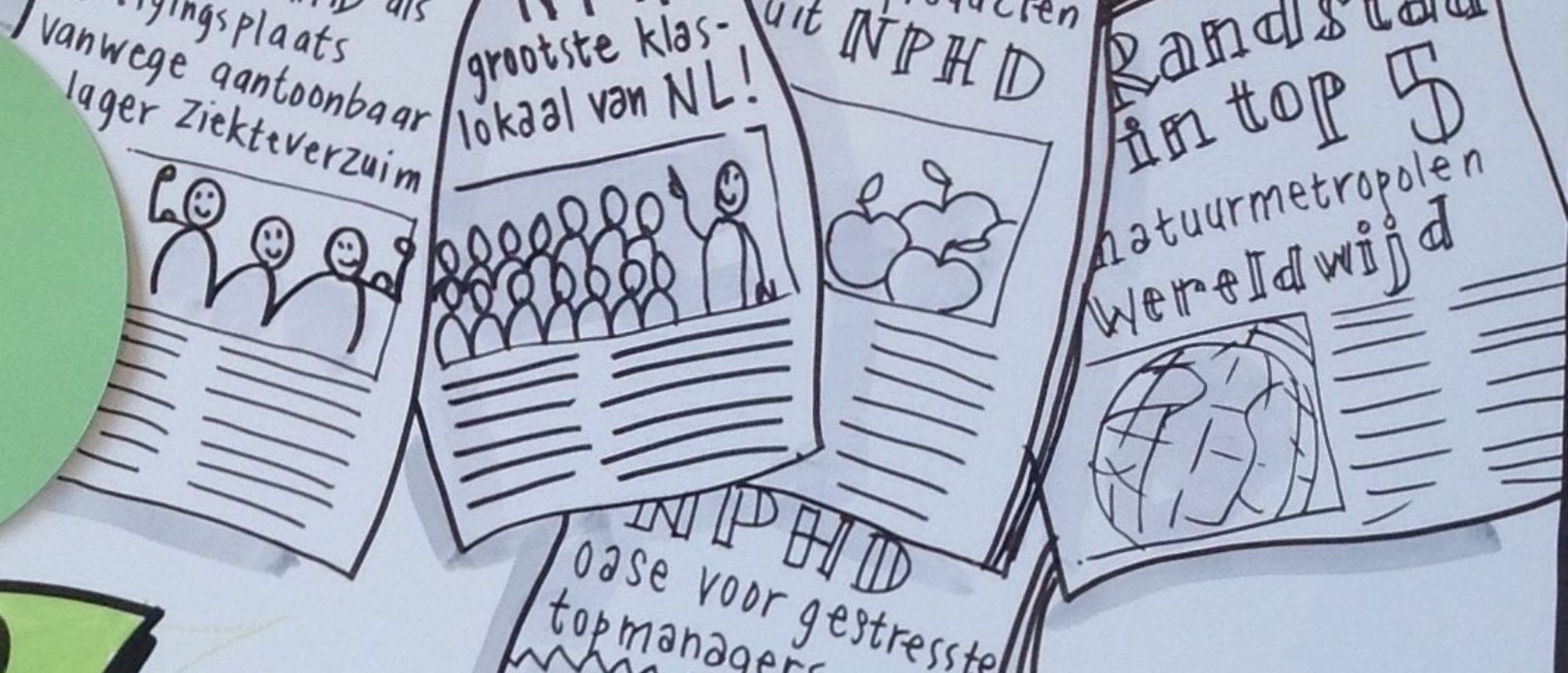Biosphere futures
New database highlights scenarios for planet and people

Materials from a scenario workshop on the Dutch national park Hollandse Duinen. Photo: Jan Kuiper.
What are possible futures of the biosphere? This Biodiversity Day, we take a closer look at a database that provides unique perspectives into how communities around the world see and envision the future of our planet: Biosphere Futures.
- So far, global scenarios have often not incorporated the diverse ways that people are living or could live locally
- Biosphere Futures seeks to collect place-based social-ecological scenario work from around the world
- The goal of the database is to offer a platform for scenario practitioners and researchers to learn from practical experiences, find resources, and showcase their work
What type of city, landscape, or region will we inhabit next year or next decade? Can people live in harmony with nature, or will people suffer floods, disease, and in a world of concrete.
Human well-being is dependent on a functioning biosphere. At the same time, human activities are shaping the biosphere more than any other force.
The future of the biosphere will be created through a combination of design, and accident that builds upon the world that exists today.
The past several decades have seen a global explosion of imagination and activity about what types of more desirable futures for people and nature could existing in specific places.
However, these efforts have often not benefited or built on one another. Furthermore, global scenarios have often not incorporated the diverse ways that people are living or could live locally.
Scenarios from around the world
A new database, hosted and organized by Centre researchers, aims to address these problems. The project Biosphere Futures seeks to collect place-based social-ecological scenario work from around the world. Currently, it includes over 100 cases, and the database’s founders hope for hundreds more.
“Our goal with the database is to offer a platform for scenario practitioners and researchers to learn from practical experiences, find resources, and showcase their work,” says Centre researcher Jan Kuiper.
He is one of the initiators behind the database and lead author of a recent article published in Ecology & Society that gives an introduction to it.
The geographic, methodological, and strategic diversity of case studies gives unique insights into the multitude of ideas, aspirations, and expectations that people all around the globe associate with the future of the biosphere, the thin layer of living matter on the surface of our planet.
Free to use
The Biosphere Future database has three aims:
- Facilitate showcasing and dissemination of scenario planning case studies
- Inspire learning, synthesis, and assessment across a diverse variety of scenario case studies;
- Connect communities of practice in the social-ecological futures space.
“This database and the wealth of case studies in it are unique. These scenarios provide essential place-based insights from all around the world about how the future may unfold”, explains Centre researcher Jan Kuiper.
Biosphere Futures is free to use and can be accessed online. The associated webpage can be used for browsing already registered scenarios and for contributors who would like to submit their own scenarios.
But the aspiration of the project goes beyond it being a database:
“We envision Biosphere Futures as a thriving community platform. Ideally, this grows into a ‘meeting place’ for people who are interested in learning from, using, or developing scenarios that explore ways to better relationships between people and nature.” explains Centre researcher Garry Peterson.
Kuiper, J.J., Carpenter-Urquhart, L.R., Berbés-Blázquez, M., Oteros-Rozas, E., Fredström, L., Psiuk, K., Savu, C., Kautsky, R., Guerry, A.D., Carpenter, S.R., Green, C.E., Meacham, M., Remme, R.P., Ravera, F., Wankmüller, F., Arkema, K.K., Pereira, L.M. & Peterson, G.D. 2024. Biosphere Futures: a database of social-ecological scenarios. Ecology & Society, 29(1).






